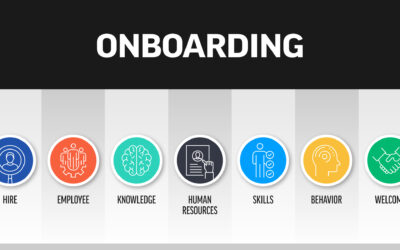As an independent insurance agent, navigating the market and crafting an offer that stands out from the rest—an offer that can’t be dismissed easily—requires a deeper understanding of your client’s specific needs and business circumstances.
If you’re not focused on a single type of client—and we’re guessing you’re not—doing some research is necessary; diverse clients naturally have diverse requirements. Embracing this diversity means slowly moving away from the staleness of a one-size-fits-all approach. Today, we’ll explore how tailoring policies for diverse clients can help you create offers that truly resonate with people.
How to tailor policies for diverse clients
Here’s your step-by-step guide to crafting offers your clients can’t refuse.
Know thy clients. While know thyself is a timeless philosophical directive from Socrates in ancient Greece, in the world of independent insurance agents, the guiding principle should be know thy clients. That’s right, understanding your clients—the unique challenges that they face—is the foundation upon which tailored insurance policies are built. You won’t be able to sell policies that simply don’t resonate with your potential clients. Therefore, before you can craft coverage that truly matches their needs, you’ll first have to gain a deeper understanding of who they are, what they value and the risks they face.
Who are your clients, and what do they value? Instead of lingering in the abstract, we’ll use a concrete example. With my background in this field, let’s explore how to understand the insurance needs of rehab centers.
According to the Substance Abuse and Mental Health Services Administration, in 2022, 48.7 million people in the U.S. aged 12 and older needed treatment for substance abuse. Now, not all of them seek treatment at rehab centers, but a significant number do. This highlights the critical role that treatment centers play in addressing a major public health issue.
While each rehab center may have its own specific priorities and values, they all share a common foundation: delivering high-quality care to those who need it the most, ensuring the safety of their patients, and, of course, maintaining operational stability.
What are the risks your clients face? One can imagine that running a treatment center for drug abuse and addiction involves numerous risks. As an independent insurance agent, it’s crucial to carefully consider these operational risks when tailoring policies for diverse clients.
Commercial property risks. Most treatment centers operate on a 24/7 basis—and many run at full capacity. Once you consider their continuous operation and high volume of activity, any damage or disruption to their property could have serious consequences. Without proper insurance coverage, such events could impact their ability to provide adequate care to patients and maintain operations significantly. As an insurance agent, your job is to offer them a safeguard against such risks, allowing the center to recover swiftly and continue supporting those in need.
Professional liability insurance. Don’t forget about the reality of malpractice and negligence claims, which can be costly all across the medical field. For drug and alcohol treatment centers, offering professional liability insurance is vital. This coverage can protect the center from claims of negligence related to the actions of its employees, whether they’re social workers, therapists, pharmacists, doctors or nurses.
While offering this type of insurance may initially seem sensitive (who’d want to count on negligence claims?), it’s a crucial service that ultimately can save your clients substantial amounts of money. It’s imperative to communicate the long-term financial benefits and protection it provides. Be open and transparent with your clients about this.
Conclusion
While tailoring policies for diverse clients might seem challenging, you now know that with thorough research and by putting yourself in your client’s shoes, you can do it with ease. The key questions to consider are: Who are your clients? What are their specific values (both common within their industry and unique to them)? And, of course, what are the risks associated with their business operations? Always keep these questions in mind.

Lauren Barry
Lauren Barry is a licensed, EDMR-approved family and marriage therapist from Boca Raton, Fla. When she’s not ensuring that the network of treatment centers she manages runs smoothly, she often writes blogs for Level Up Treatment Lawrenceville, referred to as We Level Up Lawrenceville NJ, an outstanding division of the network.






